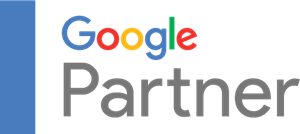Many entrepreneurs approach launching their first advertising campaign with the belief that it’s enough to deposit a budget and click “start.” However, reality is completely different. An advertising campaign isn’t a magic button for generating sales, but a tool requiring solid preparation even before the first ad impression. Without the right foundation, even the best-configured campaign won’t bring expected results, and your budget will be burned on clicks that will never convert into customers.
Why Is Preparation More Important Than the Campaign Itself?
Before you even think about the first click in the advertising panel, you must understand one fundamental truth. An advertising campaign works like a precise system directing traffic to your website, but if that site isn’t ready to receive visitors, if you don’t have clearly defined sales processes, and your offer isn’t clearly formulated, then all advertising traffic will simply be wasted. Imagine a bicycle shop that launches a campaign for women’s bikes, but on the landing page shows a mix of men’s, children’s, and tandem bikes without any segregation. A customer comes with a specific intent to buy a women’s bike and immediately leaves the site because they can’t find what they were looking for.
What Must Be Ready in Your Company Before Launching a Campaign?
The first element you need to have perfected is your website or landing page. This isn’t about aesthetics but about functionality and alignment with user intent. If you’re planning a campaign promoting dietary catering for physically active people, the landing page must show exactly that offer from the first seconds, with a clear menu, prices, and order form. Every second a potential customer must spend searching for information is a second increasing the probability of their departure. Make sure your site loads quickly, is responsive on mobile devices, and contains a clear call to action.
The second key element is preparing the inquiry handling process. An advertising campaign will generate phone inquiries, messages through contact forms, or chat. If you don’t have a person dedicated to handling them in real-time or at least within a few hours, you’re losing potential customers. An entrepreneur running an installation company who launches a campaign but can’t answer the phone for five hours because they’re on-site already sabotages their own advertising efforts at the moment of campaign launch.
How to Define Advertising Campaign Goals for Your Company?
Advertising campaign goals aren’t abstract slogans like “I want more customers” or “I need higher sales.” These are specific, measurable values that determine the entire campaign construction, from choosing the ad type to budget allocation. If you run an online store selling baby strollers, your goal might be to generate a specific number of transactions in a given price range. If you offer consulting services, the goal will be acquiring a specific number of completed contact forms from qualified potential customers.
When defining the goal, you must also determine the value of a single conversion for your company. If the average order value in your store is 1000 zlotys and the margin is 30%, you know you can allocate a maximum portion of that margin to acquiring one customer while maintaining profitability. This calculation will allow you to later assess whether the campaign is working effectively or is merely a cost generator.
Preparing Advertising Materials Before Launch
An advertising campaign in Google Ads can use up to several dozen different headlines and four descriptions, giving the artificial intelligence system the ability to test dozens of combinations and choose the most effective ones. But you must provide these components, and in appropriate quality. Prepare headlines that respond to different user needs: some should describe the product itself, some its unique features distinguishing you from competition, and some should contain a direct call to action.
If you run a company selling mattresses, your headlines might read: “Orthopedic memory foam mattresses,” “Free delivery and installation,” “Check promotion minus thirty percent.” The system will test different combinations of these messages, learning which ones resonate best with your audience. Also remember to prepare images compliant with advertising platform guidelines. In Google search network campaigns, images cannot contain text or logos, otherwise they’ll be rejected by the verification system.
Offer Structure and Campaign Logic
Before you create the first ad group, you must think through your offer structure and map it in the campaign structure. If your company offers different product or service categories, each should have a dedicated ad group with matched keywords and messages. A bicycle shop cannot display one universal ad for all bike types, because a person searching for a women’s city bike isn’t interested in an offer for men’s mountain bikes.
This segregation logic must be prepared before launching the campaign. This means creating separate landing pages or at least separate sections on the site for each product category, preparing dedicated advertising messages and keyword sets. Only then will the campaign work as a precise system matching the right ad to the right search intent.
Configuration of Analytical Tools and Conversion Tracking
Without properly configured analytical tools and conversion tracking, you’re running a campaign practically blind. Before you launch the first ad, you must have Google Analytics or another analytical tool installed and working correctly, and above all, configured conversion tracking in Google Ads. A conversion is a specific action you want the user to perform: purchase, form completion, phone call, catalog download.
If your company offers online consultations and the most important action is completing the consultation signup form, you must configure tracking so that each completion of this form is recorded as a conversion in the Google Ads system. Without this, you won’t be able to assess which keywords, ads, or audience groups actually generate valuable actions and which only consume budget without effect.
Budget and Action Schedule Preparation
Realistic budget planning isn’t just determining how much you can spend daily, but also understanding that the first weeks of the campaign are a testing and system learning phase. Don’t expect immediate results in the first days. Google Ads needs time to collect data, test different ad combinations, and optimize display toward your goal. Prepare a budget that will allow you to run the campaign for at least a month without interruptions, because each stop and restart of the campaign resets the algorithm’s learning process.
Also think through the ad display schedule. If your target group is entrepreneurs seeking B2B services, displaying ads at night and on weekends may be ineffective. Focus budget on hours when your potential customers are actually searching for solutions online and when you’re able to respond to their inquiries.
Preparation for Reacting to First Results
An advertising campaign isn’t a “set and forget” mechanism. From the first days, you must be prepared for daily result analysis, reacting to what works and what doesn’t, and making corrections. Prepare a system for daily checking of basic metrics: number of impressions, clicks, cost per click, and above all, number of conversions. The first week of the campaign is when you can catch obvious errors, like poorly selected keywords generating irrelevant traffic or ads that don’t resonate with audiences.
Be ready to add negative keywords, meaning phrases where your ad shouldn’t display. If you sell new premium mattresses and get clicks from people searching for “used mattresses for free,” you’re wasting budget on completely irrelevant traffic. Negative keywords are one of the most effective campaign optimization mechanisms, but you must add them continuously based on real search data.
Start with Professional Support
Preparing a company for its first advertising campaign is a process requiring knowledge, experience, and time. If you feel all these elements are too much for you, or you simply prefer to focus on running your business instead of technical aspects of online advertising, then the best decision you can make is using professional support. Sign up for a consultation during which we’ll analyze your company’s specifics, assess readiness to launch a campaign, and indicate specific steps that will ensure an effective start in online advertising.















